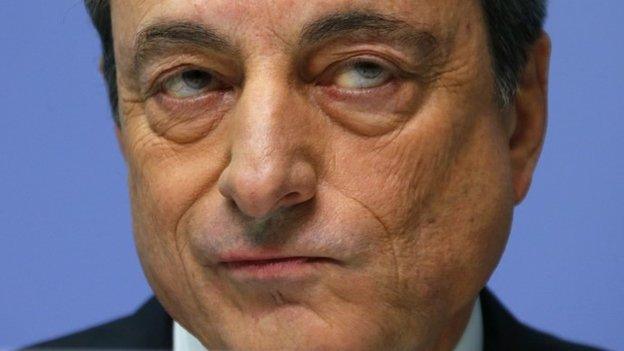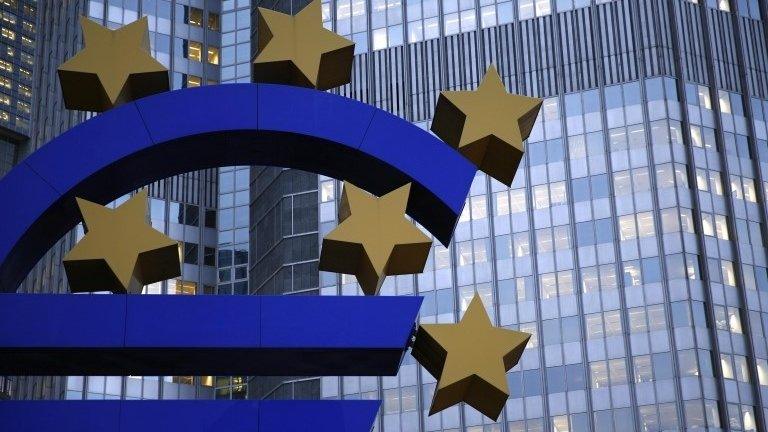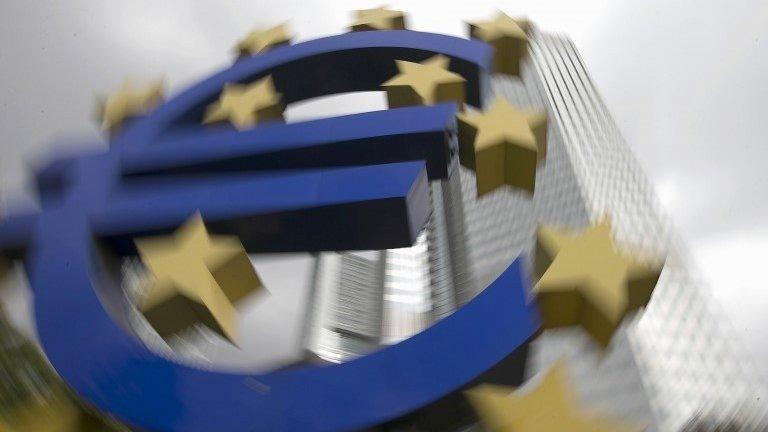German investor confidence rises again in January
- Published

ECB president Mario Draghi is expected to take action to boost the eurozone economy on Thursday
German investor confidence rose for the third month in a row in January, hitting its highest level since February 2014, a survey suggests.
The closely followed poll, external by German think tank ZEW rose to 48.4 points this month, up from 39.4 in December.
Falling oil prices and a weak euro boosted sentiment, ZEW said.
The better-than-expected rise comes ahead of Thursday's European Central Bank meeting, where it is due to take action to boost the eurozone economy.
The central bank is increasingly expected to launch a new round of economic stimulus measures, or quantitative easing (QE).
The bank has so far resisted pressure to follow in the footsteps of central banks in the UK, US and Japan by stimulating the eurozone economy through the purchase of government bonds.
In part, this has been because of opposition from Germany, which has argued that asset purchases of this type are outside of the ECB's remit.
Eurozone turmoil
But official figures in January, showing inflation in the eurozone had turned negative for the first time since the depths of the financial crisis in 2009, mean many analysts now think action is inevitable.
It is hoped that pumping more money into the financial system will raise inflation and boost the wider economy.
The ECB meeting comes three days before a snap election in Greece, caused by the failure of the country's parliament to elect a president and concerns that the country might leave the eurozone.
Greek anti-austerity party Syriza is leading in opinion polls and has pledged to renegotiate the terms of Greece's €240bn (£184bn; $278bn) bailout from the European Union and International Monetary Fund.
Jennifer McKeown of Capital Economics attributed ZEW's rise despite the current turmoil to the expectation of action from the ECB.
"Presumably any worries about the effect of the Greek crisis on the German economy were offset by expectations of ECB quantitative easing and hopes of a boost to exports from the weakening euro," she said.
- Published7 January 2015

- Published6 January 2015
